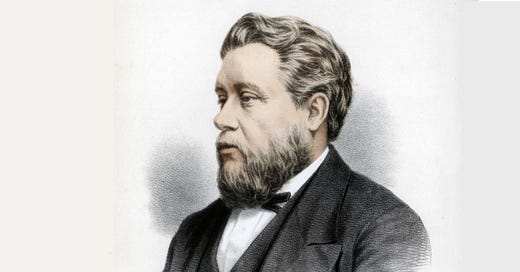Charles H. Spurgeon, often referred to as the "Prince of Preachers," was an influential Baptist preacher. He ministered in London churches during the 1800s. Spurgeon ministered to thousands of individuals during his lifetime. However, Spurgeon's life was also characterized by suffering. Anguish and Agonies of Spurgeon, by Darrel W. Amundsen, discusses Spurgeon's torments and how he reconciled his experiences with his view of God.
Anguish and Agonies of Spurgeon is one of the many resources available for download on Chapel Library (you can learn about this helpful resource in this review). What follows is a brief summary of the content and a personal note.
Spurgeon was known for his sense of humor. It often found its way into his writings and sermons. The "Prince of Preachers" was actually criticized for such expressions.
Although he possessed such great wit, Spurgeon's life was full of suffering. His trials affected him spiritually, emotionally, and physically. Pre-conversion, he suffered spiritual agonies, being deeply convicted of his sin and aware of the gospel, yet failing to accept God's grace. During his ministry, he suffered from slander, scorn, the weight of his work, and the labor of preaching. In 1856, he experienced a trial by fire when a shout of "Fire!" led to a stampede that left seven dead and dozens hospitalized. Spurgeon experienced excruciating pain due to a condition called gout. Emotionally, depression was Spurgeon's frequent companion.
Spurgeon suffered during his lifetime, yet he believed that there are no accidents. Ultimately, he believed that God was sovereign, dictating events according to his will. God being the sovereign ruler of everything brought him great comfort. Spurgeon once said,
As long as I trace my pain to accident, my bereavement to mistake, my loss to another’s wrong, my discomfort to an enemy, and so on, I am of the earth, earthy, and shall break my teeth with gravel stones; but when I rise to my God and see His hand at work, I grow calm, I have not a word of repining.
If we, like Spurgeon, acknowledge God as the sovereign ruler of the universe, everything that comes at us becomes a gift from our heavenly Father with which he will accomplish his goal of conforming us more to the image of his Son.
I greatly appreciate Spurgeon’s example through suffering. Like the Prince of Preachers, I frequently struggle with depression. I relate well to this quote from Spurgeon:
Quite involuntarily, unhappiness of mind, depression of spirit, and sorrow of heart will come upon you. You may be without any real reason for grief, and yet may become among the most unhappy of men.
Depression can strike without warning. While sadness and discouragement are common, they tend to be temporary feelings based on difficult circumstances. In my experience, depression is a state. It is a state of constant discouragement. A depressed individual may not always feel sad, but they will feel heavy. Depression weighs on a person.
It has always been a great encouragement that one of the greatest preachers in church history shares one of my greatest struggles. It helps me remember that God can use all of us, both our strengths and our weaknesses. What we may look at as a great evil can be made good by our loving God.
In his sermon titled “The Christian’s Heaviness and Rejoicing,” Spurgeon comments on 1 Peter 1:6, which reads,
In this you rejoice, though now for a little while, if necessary, you have been grieved by various trials,
Spurgeon said that, while he was struggling with his depression in light of another’s joy, this text came to his mind. He interpreted it to mean that sometimes Christians might not endure their sufferings with a joyful heart. Sometimes, our spirits sink within us, so that we may become as a little child before God.
Whether you struggle with depression or not, you too can take heart in the example of one like Spurgeon. We all suffer uniquely. While we may not look forward to our suffering, we can look to the God who cares for us. While we are in a state of suffering, we can even take comfort in the fact that God is sovereign. Suffering points us to God, and in that we can rejoice.
If you want to see the rest of my reviews, click the button below:
If you want to stay up to date with my posts, click the button below to subscribe:
Soli Deo Gloria,
Caleb Friske





